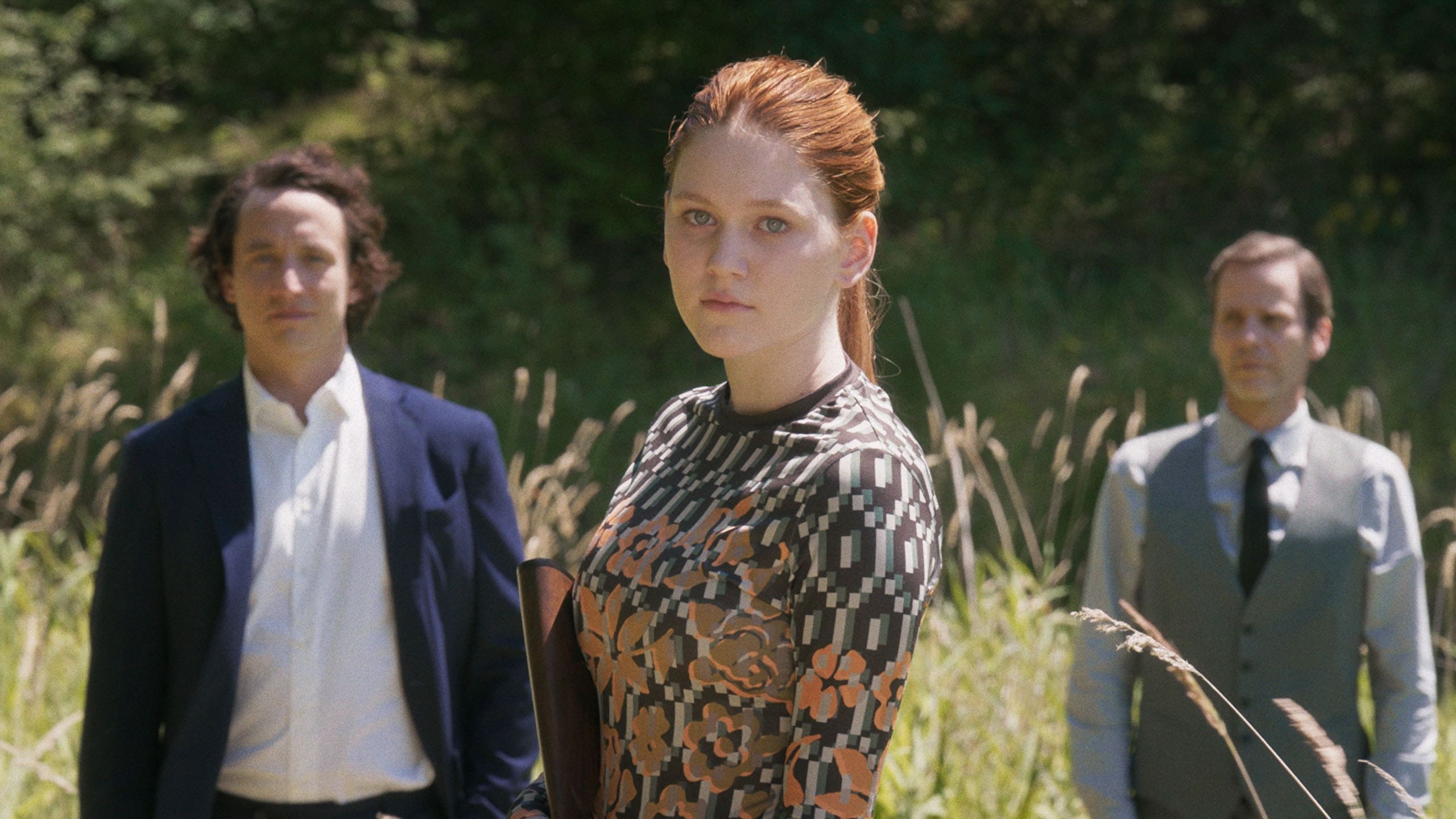
Recent films like The Menu, Triangle of Sadness, and Saltburn are varying examples of modern media taking the wealthy to task for their hunger for excess at the expense of the every person. It’s pretty much because the medium of storytelling feels like it’s the only recourse we have against a widening gap of living disparities in modern times. Once every metaphorical stone has been unturned, there’s no choice but to overly point out how these societal constructs only look out for the few and not the many.
Co-directors Daniel Hoesl and Julia Niemann certainly have no use for subtlety in the opening moments of their film, Veni Vidi Vici. First, the audience sees a quote from Ayn Rand’s 1943 novel The Fountainhead punctuated by the words, “The question isn’t who is going to let me; it’s who is going to stop me.” It’s not meant to strike some Rocky-esque comeback bravado. In the first scene, we witness an unsuspecting biker sniped from somebody in the distance. With unchecked audacity, a man and his helper go over to the man and take the bike for themselves. No, this isn’t a lawless free-for-all like the 24 hours depicted in The Purge films — this occurs in broad daylight. Nobody stops to try to accost the man and his accomplice. Nobody even moves to help the presumed dead man, either. Life goes on.
It’s the scenario Hoesl and Niemann place a stake in as they unveil the lives of the ultra-well-off Maynard family. Amon (Laurence Rupp), at least at first glance, seems like he wouldn’t hurt a fly. He’s got more money than he knows what to do with, is a family man to his children, often taking time to be involved in their lives, and is in a loving relationship with his wife Viktoria (Ursina Lardi). But Amon has dark tendencies; for one, he sees everyday people as game (hence the shooting) and butler Alfred (Markus Schleinzer) is more than willing to help him clean up the mess.
Amon is on the verge of opening Europe’s biggest renewable battery factory. In a stroke of irony, he needs government officials to reclassify wildlife reserve land to do so. One prominent official, in particular, will move heaven and earth to do so, and Amon won’t mind going behind his business mentor Carl (Manfred Böll) to pull the deal off.
If you haven’t noticed by now, there’s nothing in place to stop Amon from endlessly conquesting on murder and power rager. His oldest daughter Paula (Olivia Goschler) serves as a narrator throughout the film, speaking on the fact she recognizes the privilege in which her dad resides. The thing is, we all do, and no amount of overtness is shocking at this point. The film breaks up its examination into three parts to display how this one family can relish in this upward trajectory without a roadblock in place.
There’s a gamesman who witnesses Amon’s murderous streak, but his insistence that the police follow the leads is disregarded. A journalist named Volker (Dominik Warta) has overwhelming evidence tying Amon to these murders but is deterred everywhere possible. If it’s not pushback from his ex-wife Regina (Andrea Wenzl), who won’t publish his findings, Amon directly challenges him.
Hoesl and Niemann set the stage for a cat-and-mouse game in the latter part of Veni Vidi Vici. The problem establishes a feeling within the audience that Amon will get away with it anyway. No suspension of disbelief or heightened tension exists because every cog is meant to turn how the Maynard family wants it. If politicians aren’t in their back pocket, Viktoria’s job as a public defender gives them cover. The narrative almost feels like a runaway train that cannot stop and look as to why all of this exists in the first place. Subplots occur concerning Viktoria’s inability to have children and their looking at potential surrogates as fodder. Questions arise with Paula herself and if the conduct her father is exhibiting will create a runway where she’ll mimic the worst of his tendencies.
But most of it falls away due to how direct the imagery is. We know that inequality is vast, and the consequences of greed don’t usually fall upon those with enough cash to buy their way out of it. However, it’s not merely enough to show this in action when other stories have done so with something more to say on the matter.

